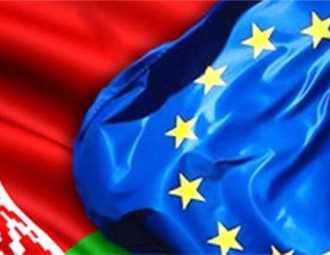EU lowers its goals for Belarus: Easing of West policy hasn’t been secured by any political demands

Since opposition and civil society were fully crushed as a result of repressions over recent years the authorities didn’t have to use force in the president election in October, writes Rafał Sadowski.
On 12 October, the European Union announced the suspension of its sanctions against Belarus for four months. The decision must be formally approved, but is likely come into force in November. The suspension applies to sanctions introduced against persons responsible for the repression and falsification of the presidential elections in 2010, as well as economic entities deemed to be supporting the undemocratic regime. Sanctions will be maintained against persons suspected of involvement in the disappearance of political opponents in 1999-2000, as will the embargo on arms trading. The EU also announced further steps to ease its policy towards Minsk, primarily opening Belarus’s access to EU funding programmes (the European Investment Bank and the EBRD) and financial markets in the EU, and in addition, to other cooperation programmes mainly available within the framework of the Eastern Partnership.
Representatives of the EU have explained the decision to ease the sanctions in terms of an improvement – as they see it – in the human rights situation in Belarus, including the easing of repression, the release of political prisoners and the peaceful conduct of the presidential election. Another argument for resuming dialogue with Minsk is the attempt to strengthen Minsk’s independence in its relations with Russia, as well as support to maintain the country’s economic stability. When assessing the internal situation in Belarus, it must be taken into account that the opposition and civil society structures have been completely crushed and marginalised as a result of the repression over recent years. As a result, during the presidential election in October, the authorities did not have to use force. However, they may return to it at any time by using the repressive legal system and the well-developed institutions of force.
This easing of EU policy has not been secured by any specific political (apart from not escalating repression) or economic demands. This means a significant reduction in the goals of the EU’s policy towards Minsk, which was previously assumed to be bringing about political and economic liberalisation. The EU, which has neither the political will nor the instruments to pursue an active policy towards Minsk, has de facto accepted the political regime there. This is mainly due to the lack of interest in Belarus in most member states (apart from the business interests of a few countries). Brussels would prefer to end the conflict with Minsk, in order to maintain stability in the immediate vicinity and look for the benefits to be obtained from limited business cooperation.
From the standpoint of the Belarusian authorities, gaining access to foreign sources of funding (international support programmes and financial markets) is crucial, due to the country’s ongoing economic crisis (GDP has fallen 3.7% in the period from January-September 2015) and the absence of growth factors in Belarus’s economy (the economic slowdown in Russia, the low price of petroleum products on the markets, etc.). This latest move is also beneficial for Russia because it will reduce the costs of maintaining the unreformed economy of Belarus, where Russia still has the dominant political influence. However, the possible lifting of EU sanctions (which is likely in late February 2016) will not change the political and economic system in Belarus, which is uninterested in implementing even limited reforms.
-
03.01
-
07.10
-
22.09
-
17.08
-
12.08
-
30.09








































